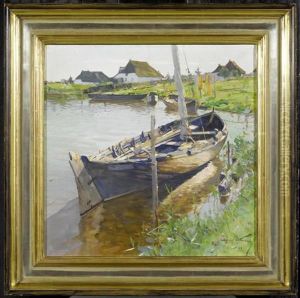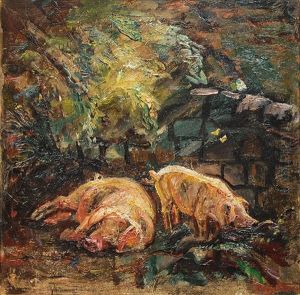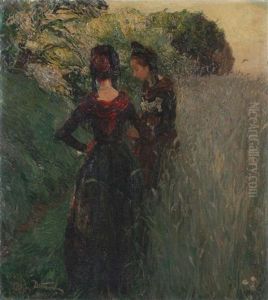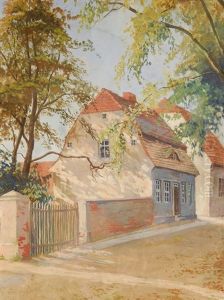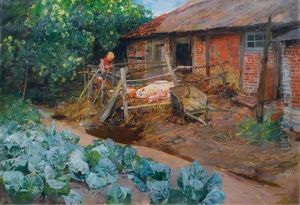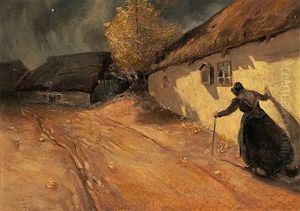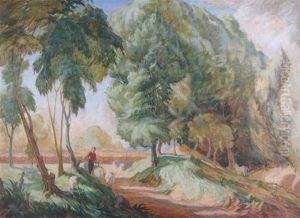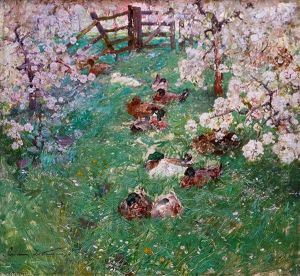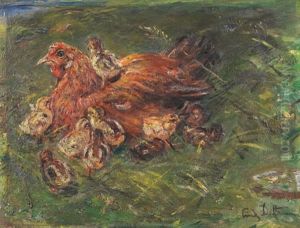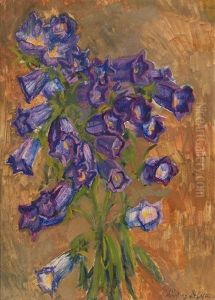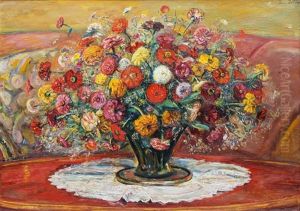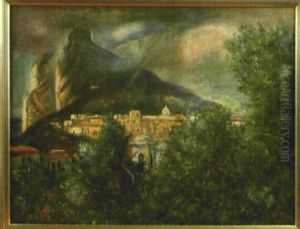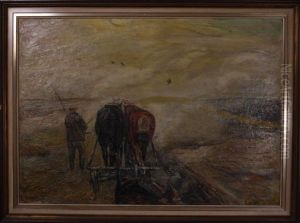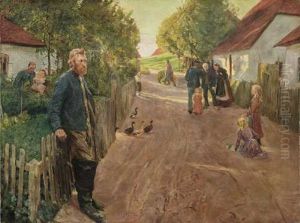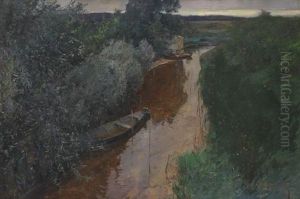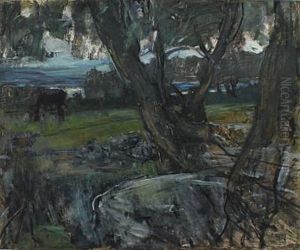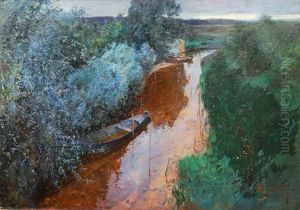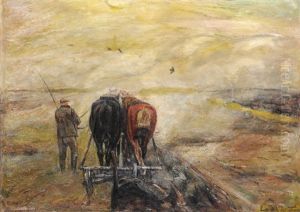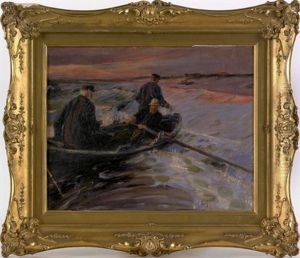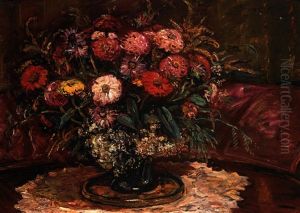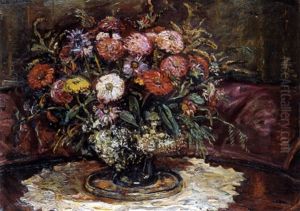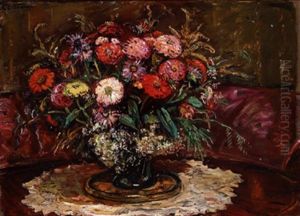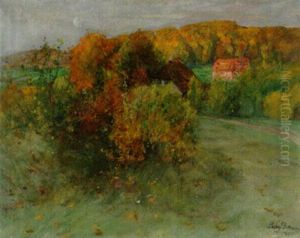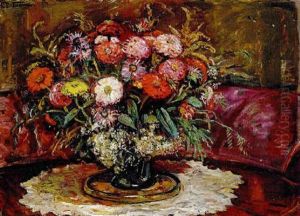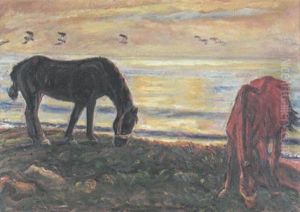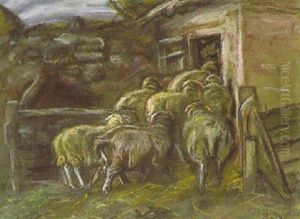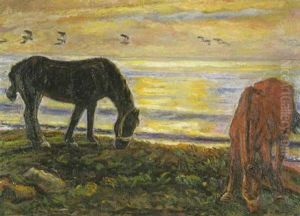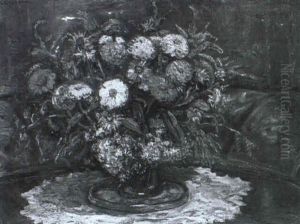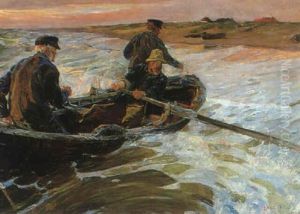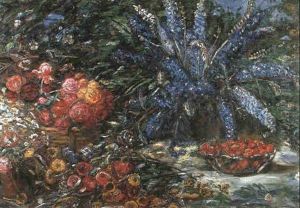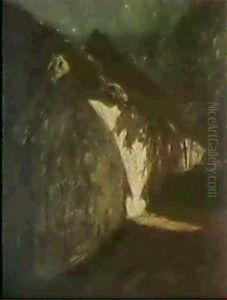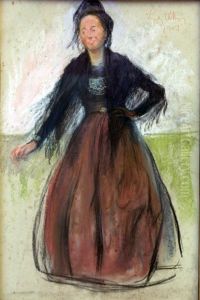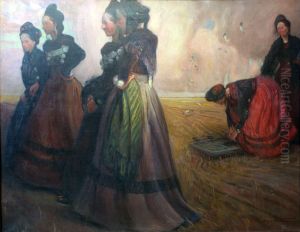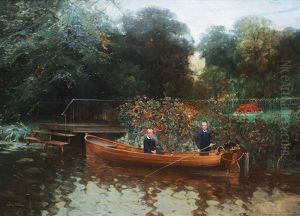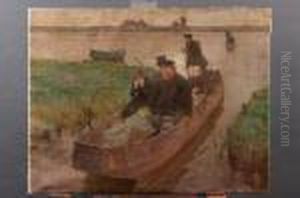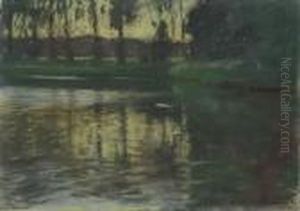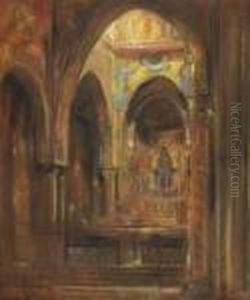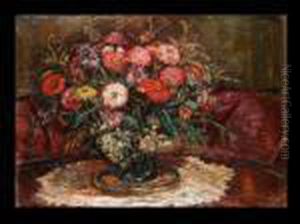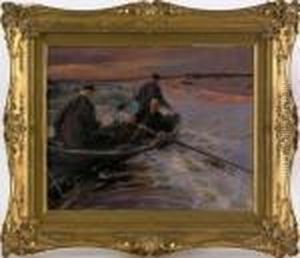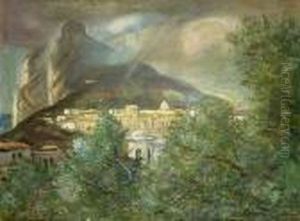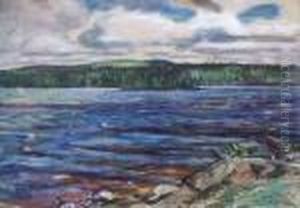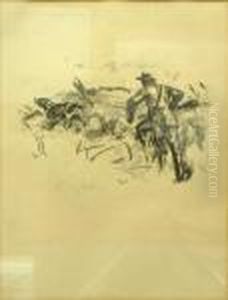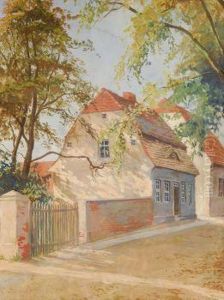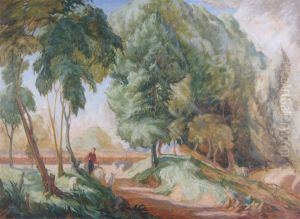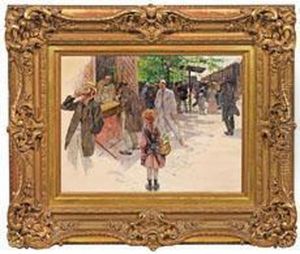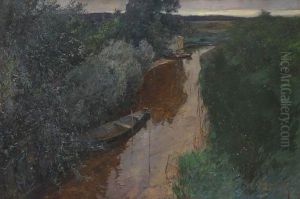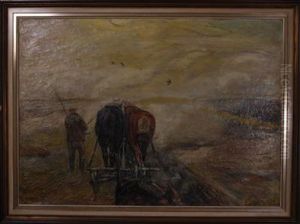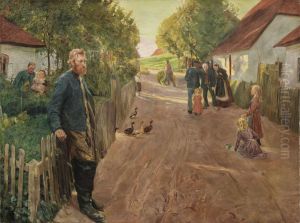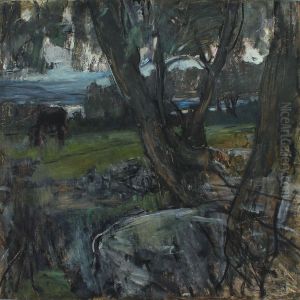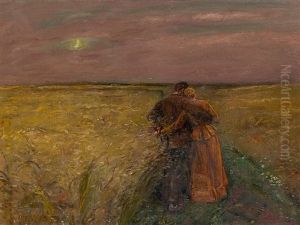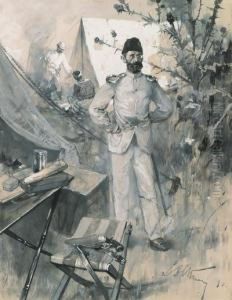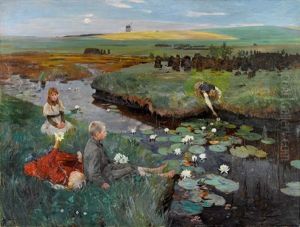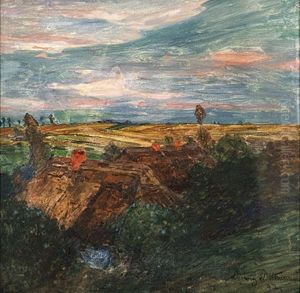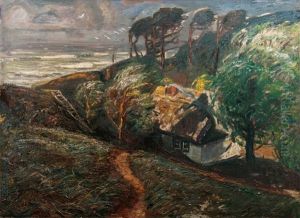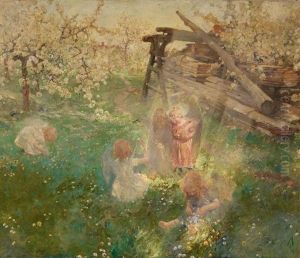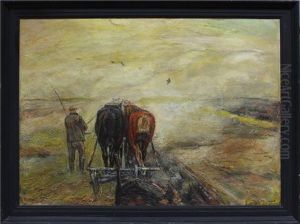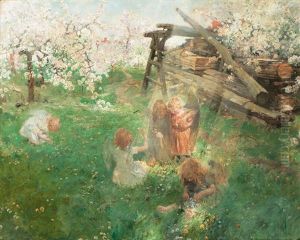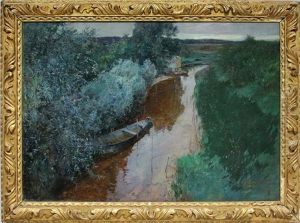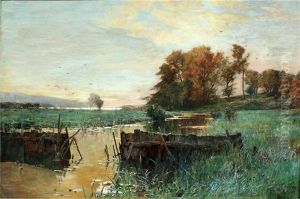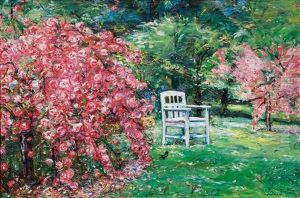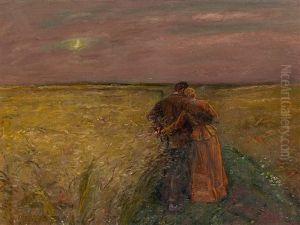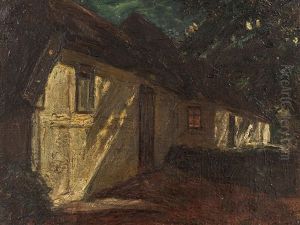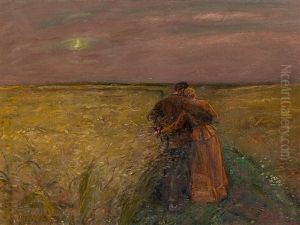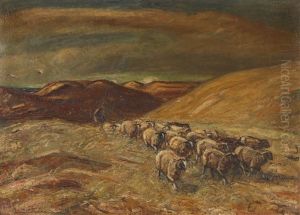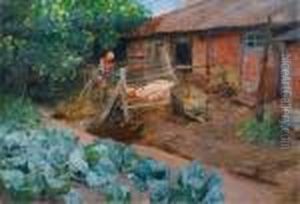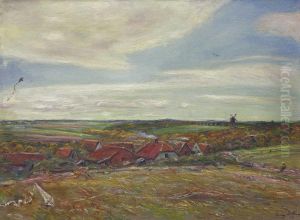Ludwig Dettmann Paintings
Ludwig Dettmann was a prominent German painter and illustrator, born on July 25, 1865, in Adelby, near Flensburg. He grew up in a period marked by significant changes and developments in the arts across Europe, particularly in Germany, where a surge of interest in naturalism and later, expressionism, began to take hold. Dettmann's artistic journey is reflective of these shifts, showcasing his ability to adapt and evolve his style throughout his career.
Educated at the prestigious Academy of Fine Arts in Königsberg (now Kaliningrad, Russia) and later at the Berlin Academy, Dettmann was influenced by the teachings of some of the era's most renowned artists and educators. His early work was characterized by a keen interest in naturalism, focusing on detailed landscapes and portraits, which captured the essence and mood of his subjects with remarkable sensitivity.
As the 20th century dawned, Dettmann's style began to evolve. He became associated with the Berlin Secession, a group of artists who broke away from the traditional art establishments to explore more innovative and expressive forms of art. This period marked a significant shift in Dettmann's work, as he began to incorporate elements of impressionism and expressionism, experimenting with color and form in bold new ways.
Throughout his career, Dettmann was not only a painter but also an accomplished illustrator, contributing to various magazines and books. His illustrations often reflected the same qualities found in his paintings—vibrant colors, dynamic compositions, and a deep emotional resonance.
In addition to his artistic endeavors, Dettmann played a significant role in the German art community. He served as a professor at the Prussian Academy of Arts in Berlin and was involved in numerous exhibitions and art organizations, helping to shape the direction of German art in the early 20th century.
Despite the challenges posed by World War I and the subsequent political and economic turmoil in Germany, Dettmann continued to produce work that was both reflective of the times and deeply personal. His paintings from this period often depict scenes of war and its aftermath, offering a poignant commentary on the impact of conflict on society and the human spirit.
Ludwig Dettmann's contributions to German art were recognized with numerous awards and honors throughout his life. He passed away on October 19, 1944, in Berlin, leaving behind a legacy that continues to be celebrated for its depth, diversity, and emotional power. His works remain a testament to the transformative power of art and its ability to capture the complexities of the human condition.
